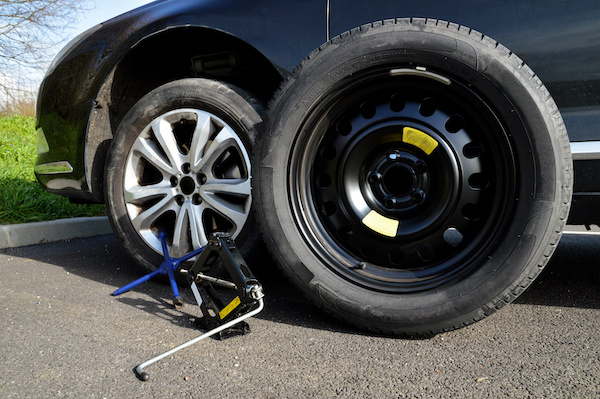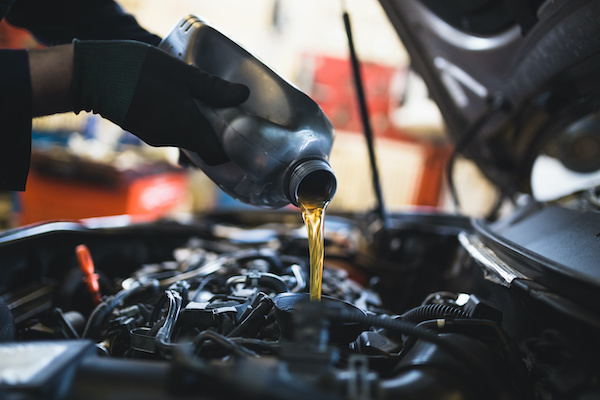Posted on 12/18/2021

Oil changes are the most frequent maintenance items for most car owners. While these visits to the auto repair shop may be quick, the consequences of neglecting a needed one can be devastating for your car's health and your wallet. Here are some ways to determine if your vehicle needs an oil change soon: Number of Miles You've Driven On average, most cars need an oil change about every 3,000 miles. However, this number can differ depending on your driving habits, your driving frequency, the age of your car, and the type of oil you use. If you drive a more modern vehicle, you might be able to put it off a little longer between each change. It is best to consult with your owner's manual or car experts if you are unsure. Vehicle Notification System The most obvious sign that it is time to get an oil change is if there is a warning light on your dashboard. Assuming that your oil change light is working, waiting for the message to come on will take away some of the flexibili ... read more
Posted on 11/11/2021

Flat tires are sometimes unavoidable, no matter how much you care for your tires. A simple nail can do the trick. As you try to calm yourself and pop the trunk open to reach for the spare, you may notice that it is much smaller than your regular tires. Most vehicles come with fairly thin, fragile spares, and they're sometimes referred to as a 'donut.' This may have you wondering, "why". The first reason why the spare tires are smaller is to maximize trunk space. Donut tires have a shallow tread with a narrow width. The material for the spare is also lighter, making it easier for the average individual to carry and install. If a spare tire were the same size as a regular tire, it would add excess weight to your car. But the primary reason why donut tires are small is that they are just a temporary method. Spares are only supposed to get you to a repair shop safely and last for only about 100 miles. The smaller-sized tires also make ... read more
Posted on 10/7/2021

If you've been a vehicle owner for a while now, you should already know the importance of routine car maintenance. Fall is one of the most vital times of year to complete a check-up of your car. Not only do you need to prep it for the cooler weather, but it needs to recover from the heat of summer. The hot summer in NC/SC wore down your vehicle a lot more than you think, and most of the time, you can't see it with the human eye. You can trust our expert team to properly inspect and diagnose any of the pesky damages early on. A tune-up can give your car, SUV, or truck the refresher it needs and prepare it for what it will face in the fall and winter. We highly recommend you follow this maintenance checklist so that your car can run healthy and safe throughout the season. Check all your tires for treadwear, condition, and air pressure. If you require new tires, Woodie's Auto Service and Repair Centers has a wide selection of tire options to choose fro ... read more
Posted on 9/15/2021
.jpeg)
We are all aware that pulling forward out of a parking spot is always quicker and more convenient than backing out. Depending on the area you live in, angled parking spots may be more common and challenge you to reverse park. However, with more vehicles equipped with modern technology, such as backup cameras and motion sensors, reverse parking should be a piece of cake! Below are some reasons why it's more beneficial to back into parking spaces: Due to technology enabling us to see better and straining our necks, backing into a parking space can be done faster than ever. You can save extra time when leaving the parking lot since you don't have to stress looking for oncoming vehicles, bikers, or pedestrians. If you experience an emergency that requires you to leave fast, reverse parking makes it simpler to jump into your vehicle and go where you need to be. If you are experiencing any mechanical problems with your vehicle, you'll have more access to the hood o ... read more
Posted on 8/27/2021

Problems with car starts are significantly annoying. The worst part is that there are hundreds of reasons why your car may not be starting. Below we've narrowed it down to the five most common causes. Low or Empty Gas Tank If you're an individual who likes to drive until your gas gauge is sitting on empty, that might be the sole reason why your vehicle won't start. While it's inconvenient, low gas is not a difficult problem to fix. Next time, try not to let it happen, especially during the winter. When your car sits outdoors in freezing temperatures, the air in your gas tank could moisten and freeze. Dead Battery A dead battery is usually the culprit for not starting your car, and it's prevalent in the hot summer. Higher temperatures put a heavier strain on your battery so that you may be welcomed with a dead battery in the fall. You'll need to jump-start it for a temporary fix, but you'll probably need to get it to the repair shop ... read more
Posted on 8/13/2021

If you own a vehicle that has been with you for more than ten years, you may be curious about how long cars are meant to last. Automobiles do not have an expiration date, so when do you know that it's time to let one of them go? On average, a vehicle will last approximately 11-12 years on the road. However, with good maintenance and attention, your vehicle can last even longer. Believe it or not, the Guinness World Record for the highest vehicle mileage on a personal car has over 3,000,000 miles on it! So - anything can happen! The lifespan of any vehicle will also depend upon the make, model, year of your car, and personal driving habits. Newer automobiles are expected to last even longer than older cars. However, we will see whether that prediction holds later on. Studies have shown that trucks and SUVs tend to have a longer lifespan than any other type. Regardless of what kind of vehicle you operate, understand the actions you could take as an owner to ex ... read more
Posted on 6/10/2021

As all drivers know, driving on worn-out tires is an impediment to your car’s performance and your personal safety. However, do you know when to tell whether your tires are wearing thin? Don’t fret - that is why Woodie’s Auto Service and Repair Center is here to help. There is a simple hack that you can do to check your tire tread with spare change! Measuring Tread with the Penny Test According to the U.S. Department of Transportation, you should replace your tires once the tread has been worn down to 2/32 inches. But it is not simple to pull out a ruler at hand to measure that. The easiest way to calculate your tread depth is using a penny. Here are the steps you should follow: Using the penny, place it with Lincoln’s head upside down on one of the ridges of your tire. If part of the head is covered, that means your wheels are still in good shape. If you can see his entire head, then your tread has been worn to 2/32 inch or l ... read more
Posted on 5/17/2021
.jpeg)
No matter how well you take care of your car, there will be times when it just does not seem to be performing at its optimal level. It can often be difficult to figure out what the issue is, but there are some indicators that you can be looking for. One of those involves the color of the smoke that is coming out of the exhaust. That will often direct you to the likely culprit. Here are three of the most commonly seen exhaust smoke colors and what they tend to indicate. A Black Color This is probably the most common color that you will see. It is an indicator that your mixture of air to fuel is a bit off. Most gas engines are meant to operate with just the right mixture of fuel and air. This creates the optimal condition for combustion once a spark is introduced. If there is too much fuel, then mechanics call this being rich. That is not what you want. A Blue Color If you see blue smoke coming out of the exhaust, then you are probably burning some oil. This is not what you want. Oil ... read more
Posted on 4/21/2021
.jpeg)
One of the unfortunate situations that drivers deal with is having a sluggish car or reduced acceleration power. When that happens, the two major causes are loss of power and insufficient fuel. However, such problems are caused by a fault in one of the engine's components or sensors, impacting its ability to meet energy demands to operate efficiently. Below, we discuss some common reasons your car might be sluggish. Dirty Air Filter When you have a clogged or dirty air filter, the air flowing into the engine decreases. That affects the air-fuel ratio in the engine's combustion chamber. That reduces the power delivered to accelerate the car. Worn-n-torn Clutch Another common reason why your vehicle loses its acceleration power is a worn-out clutch. In fact, nine out of ten cases of unresponsive acceleration is an old clutch. The purpose of the clutch is to transmit torque from the engine to the transmission effectively. An old, corroded clutch often fails to engage with the ... read more
Posted on 3/12/2021

The gig economy and the effects of COVID 19 have pushed many people to work from home. This scenario means that many people are not driving as much as they did a while back. If you have been driving less lately and wondering if you need to change the oil often, our answer is YES! You need to change the oil. Learn why it is important and how often you should change the oil in the section below. How Often Should Change Your Oil? Most car owners use a mileage-based method to determine when to change the oil (about 5,000 miles). However, you can also apply a time-based oil change. Consider changing oil every six months or just twice a year. The reason is that engine oil degrades with time. Therefore, even if the car is not moving regularly, the oil becomes less effective. Some newer models do not require oil changes like their older counterparts. The reason is that they use synthetic oil, which can last longer than its conventional alternative. If your car uses syntheti ... read more